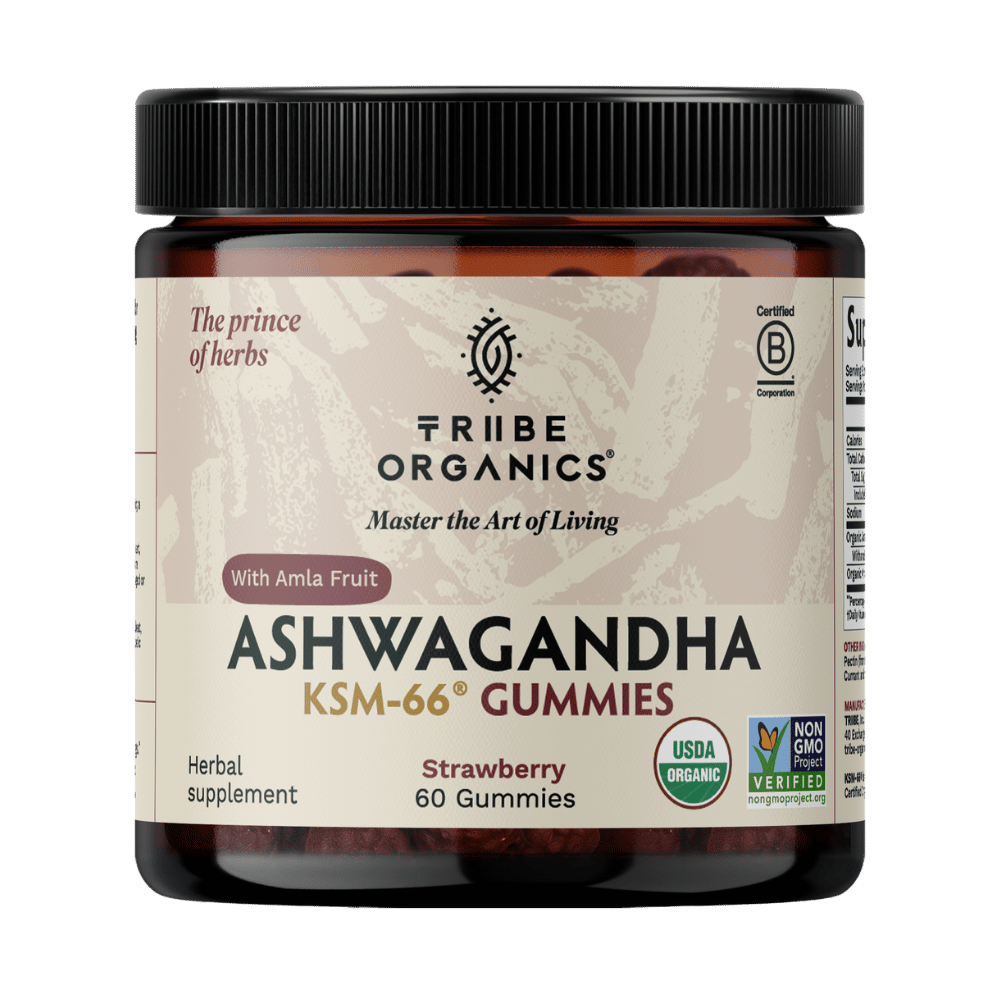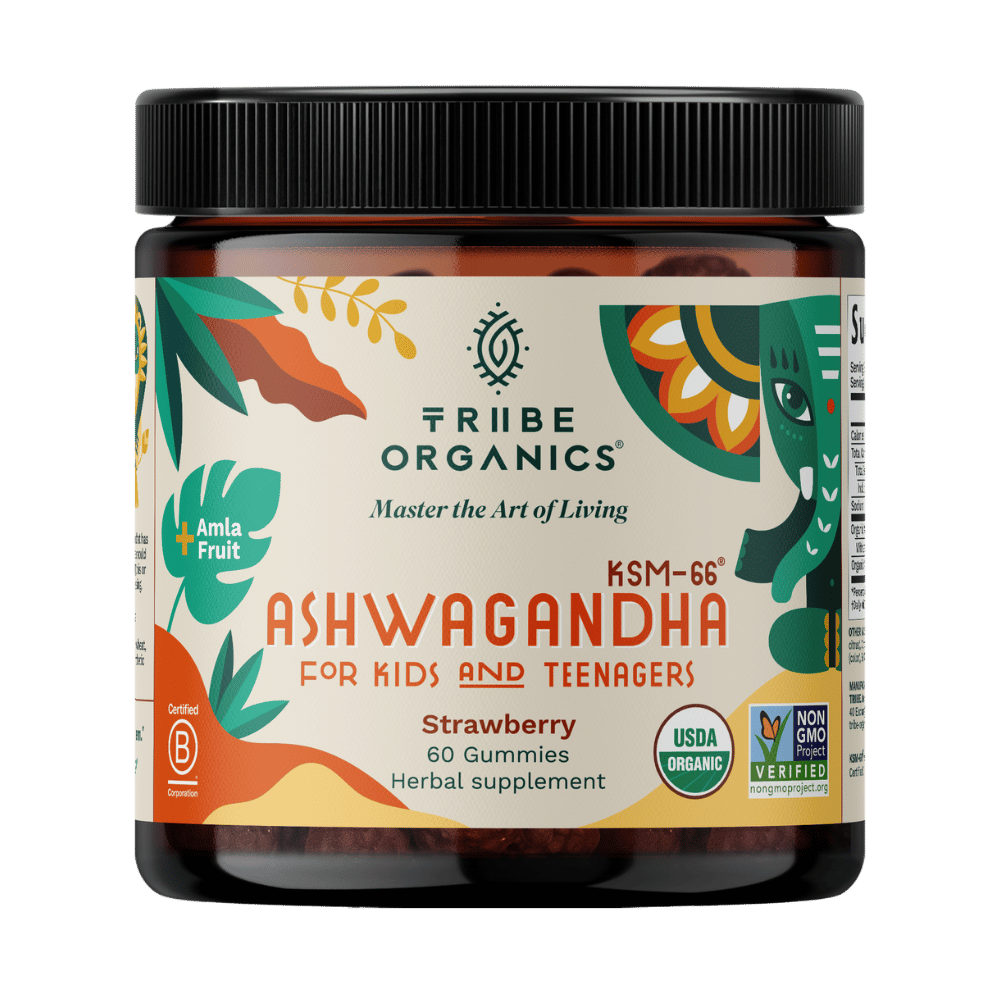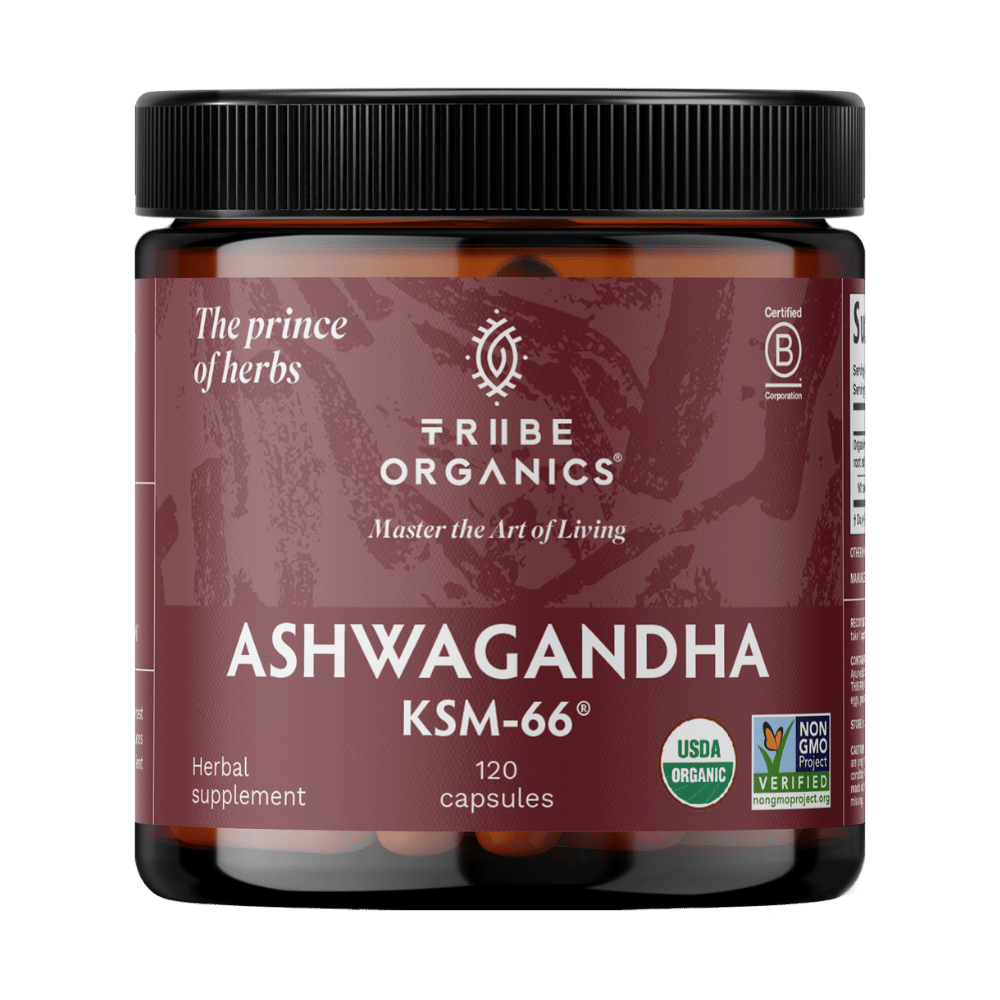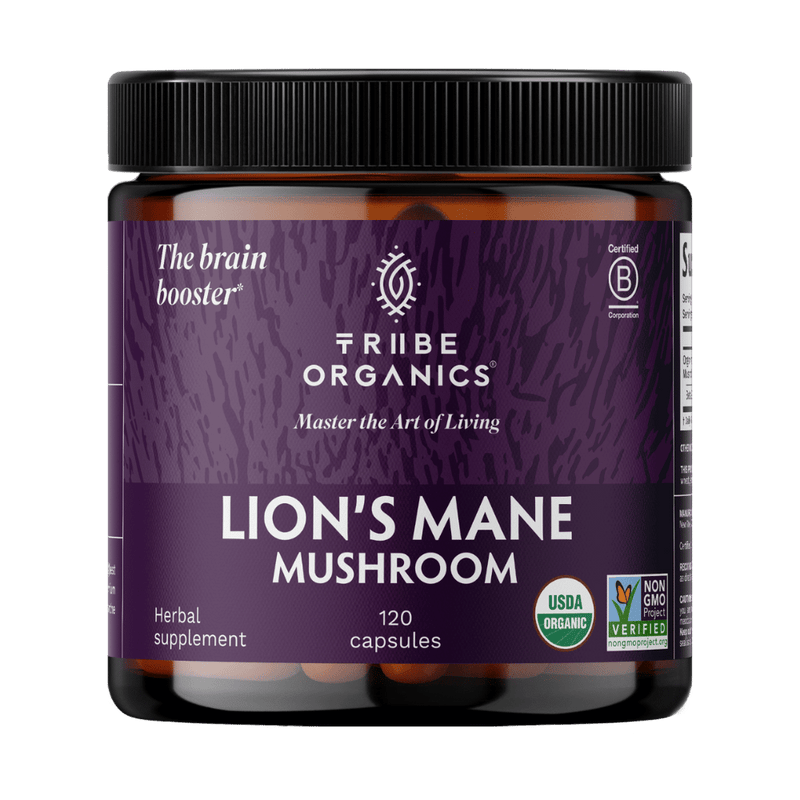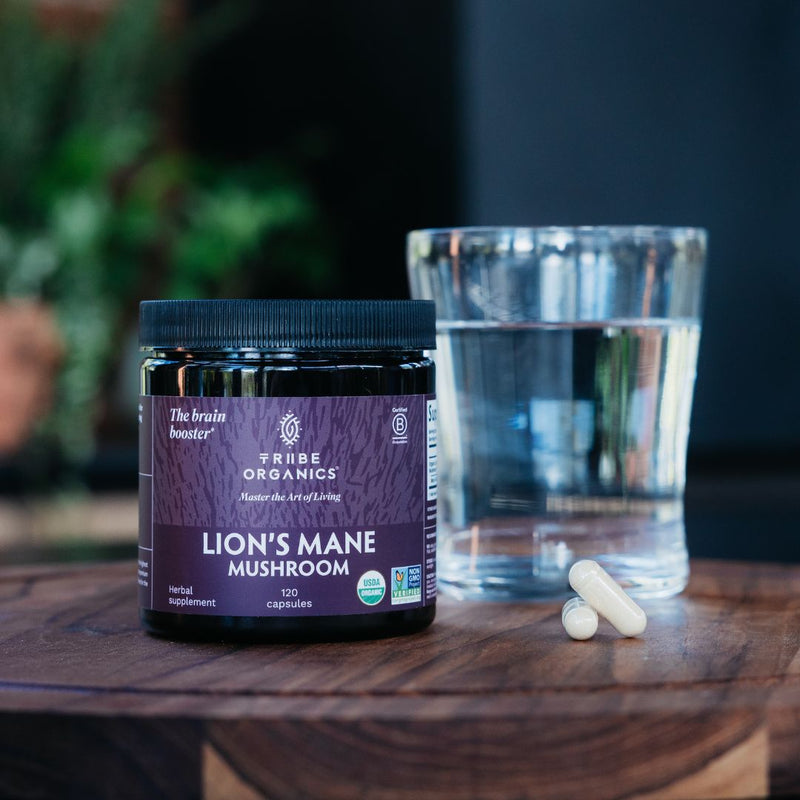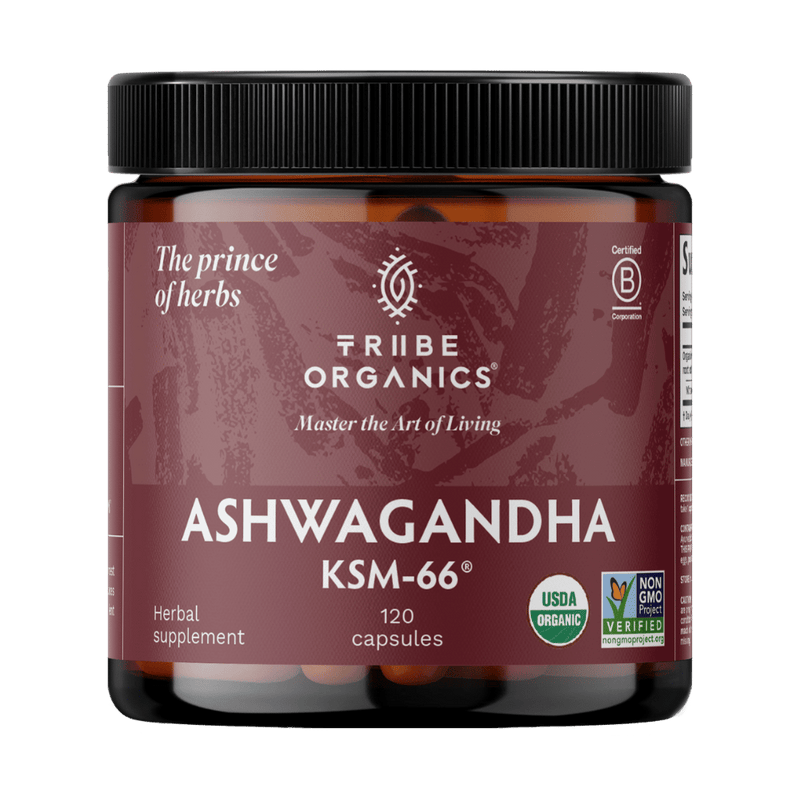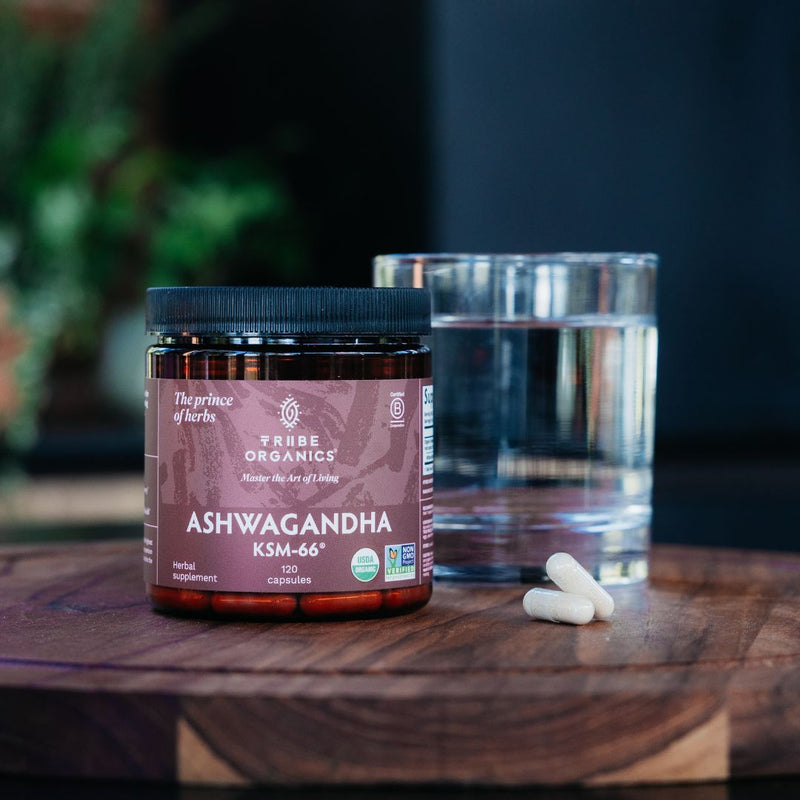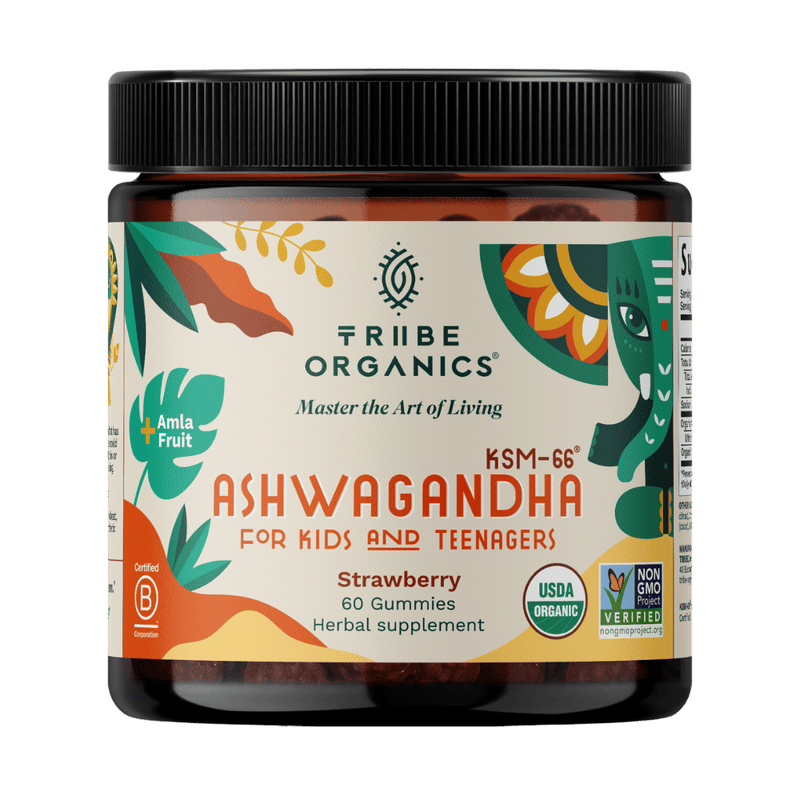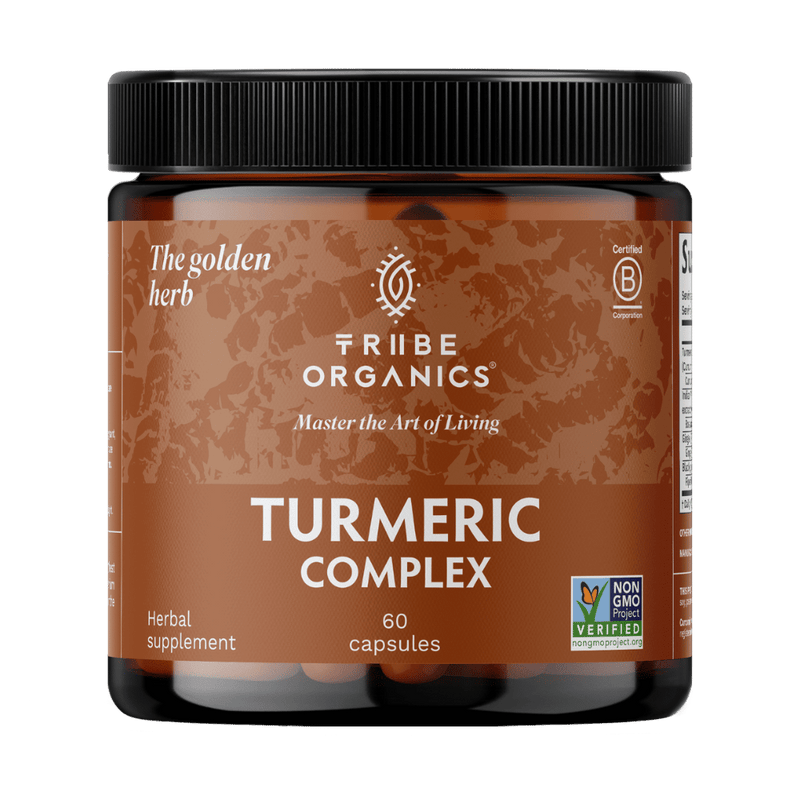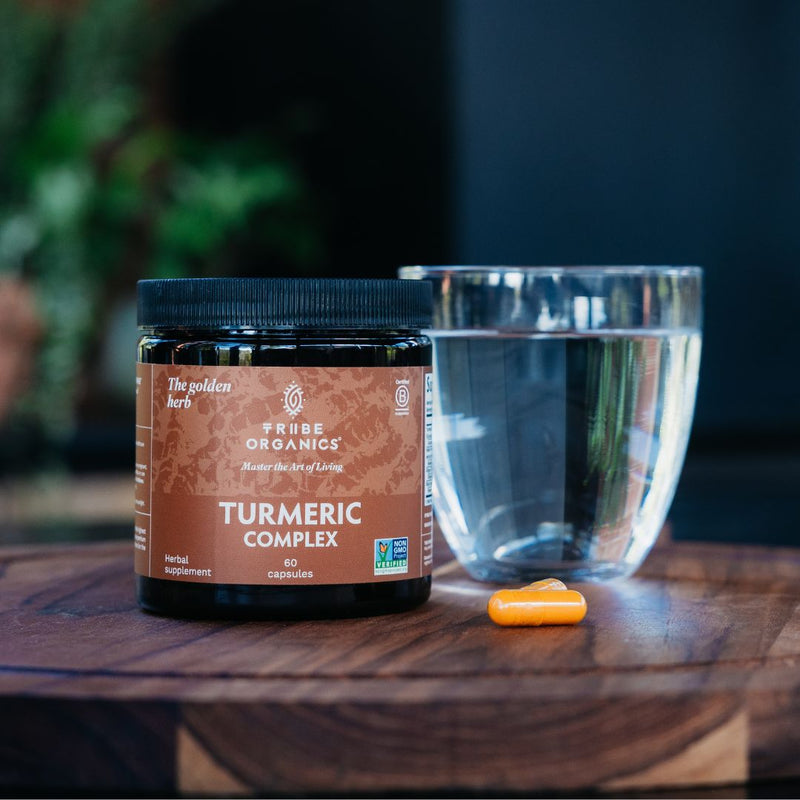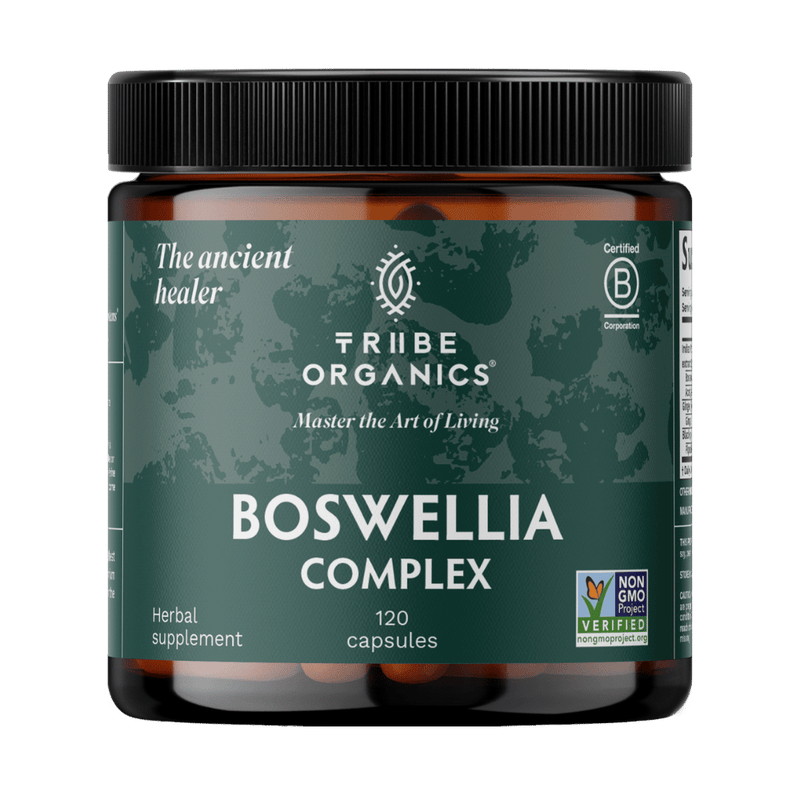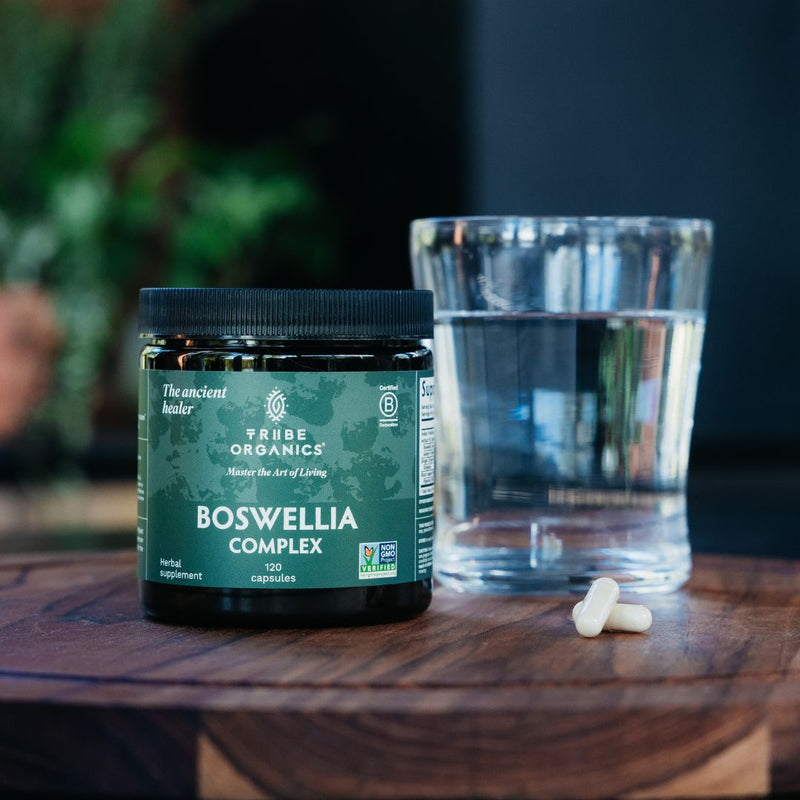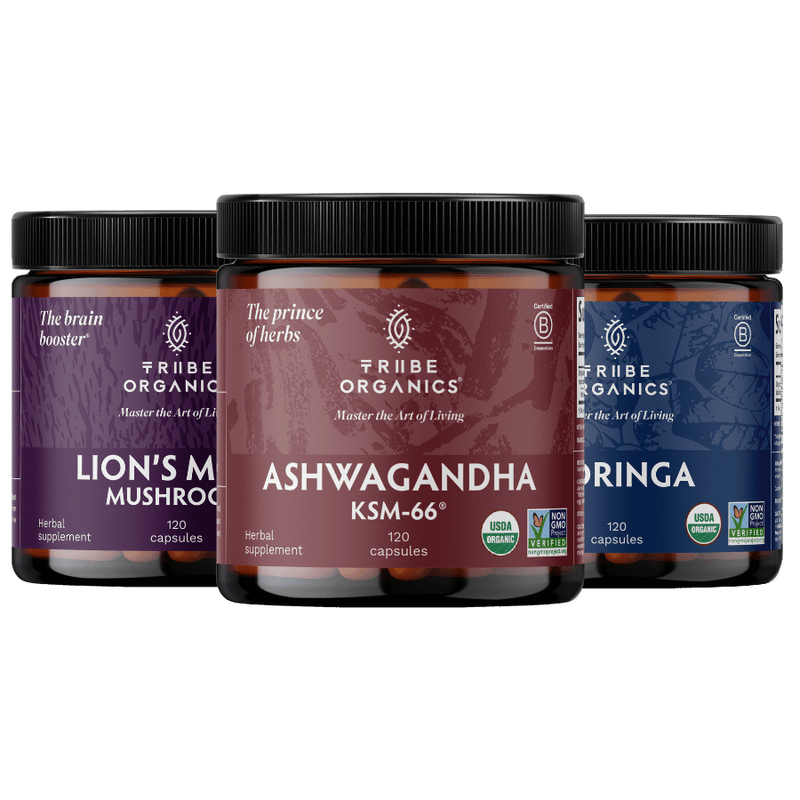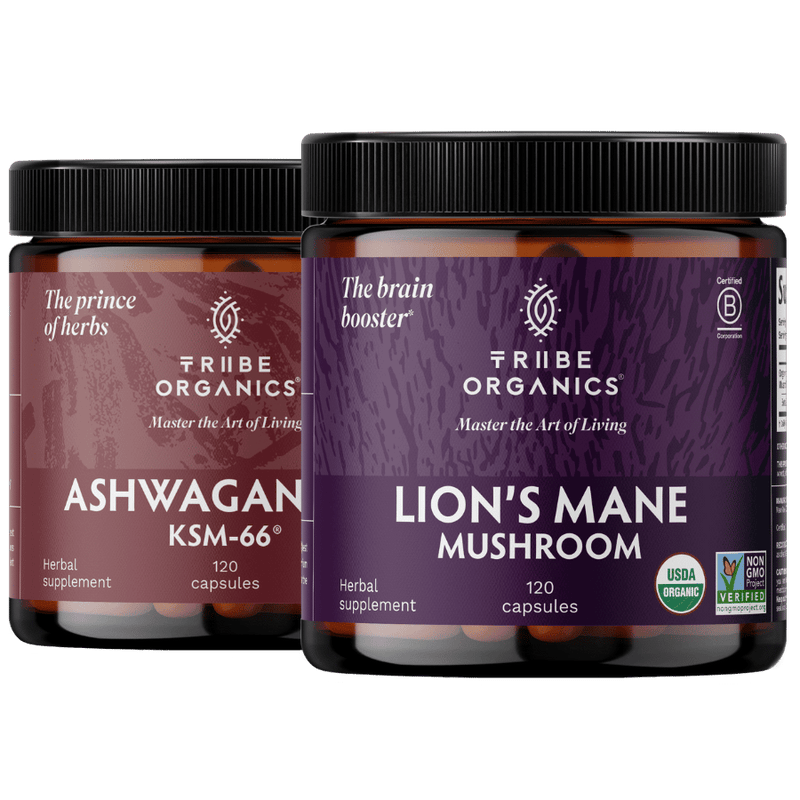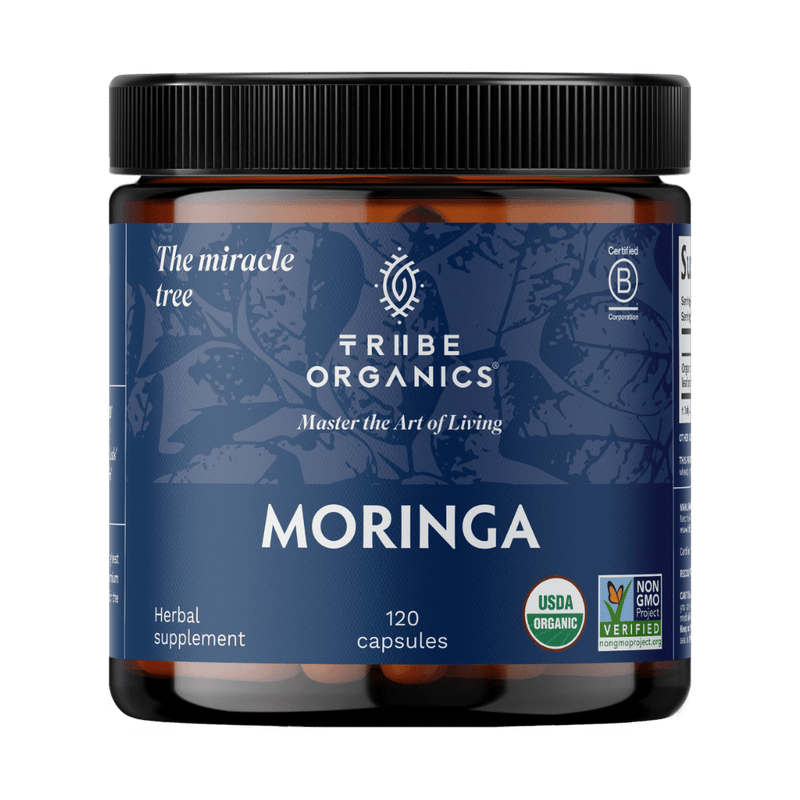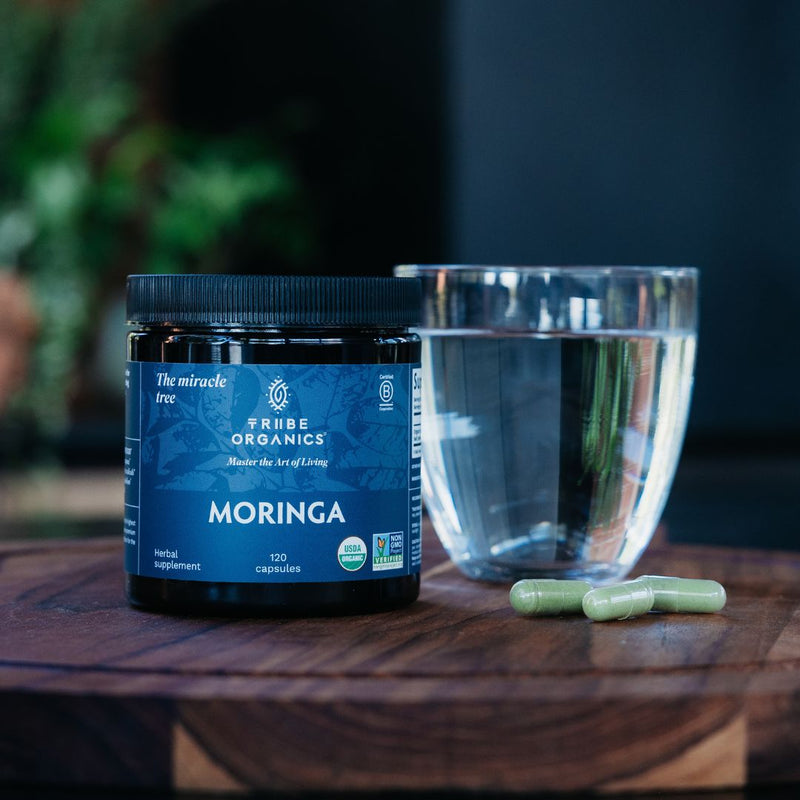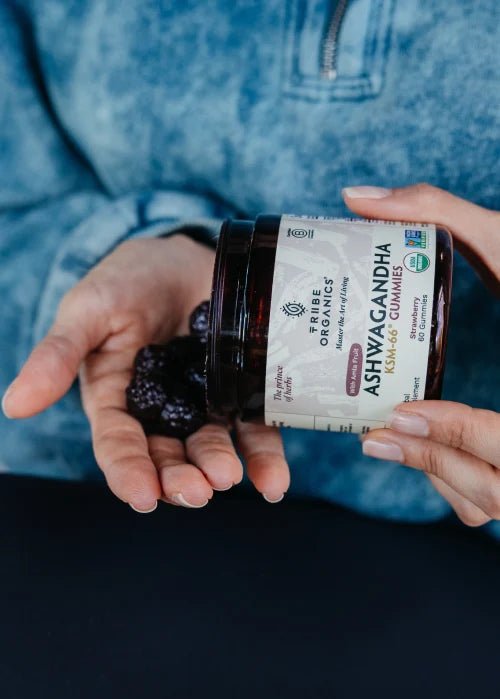So you’re thinking about adding Ashwagandha to your personal optimization protocol and wondering "when will this kick in?". One of the main questions people have is how long does it ashwagandha take to work. This ancient herb from ayurvedic medicine has gotten a lot of attention for its stress-reducing and health-promoting properties but understanding realistic timelines is key to setting proper expectations.
If you’re asking how long does ashwagandha take to show effects, the answer isn’t simple – ashwagandha’s effect-timeline varies greatly based on individual factors, dosage, supplement quality and your specific health goals. Research suggests most people see noticeable benefits between 4-12 weeks of daily use, though some initial improvements may show up as early as 2-3 weeks.
In this guide we’ll break down the science-backed timeline for how ashwagandha work, explaining that this supplement works gradually over time. We’ll also cover factors that affect how fast it works and practical strategies to maximize its effectiveness for your physical and mental health.

Quick Answer: Timeline for Ashwagandha Effects
The effects of ashwagandha develop gradually, with most people seeing noticeable benefits within 4-12 weeks of daily use. The timeline for the effects of ashwagandha varies greatly based on:
- Stress relief: Initial benefits may show up within 2-3 weeks, significant improvements after 4-8 weeks
- Sleep quality: Typically within 6-8 weeks of regular use
- Muscle strength and physical performance: Usually 8-12 weeks
- Sexual function and fertility: 8-12 weeks
- Thyroid function: 8 weeks in subclinical hypothyroid patients
- Hair health: longest timeline, 12-24 weeks for visible results
Individual response varies based on dosage, extract quality, health status, and specific wellness goals. Studies have used doses ranging from 250 mg to 600 mg per day, and different dosages can affect how quickly results appear. Some people notice subtle improvements in mood and energy within the first few weeks, while robust measurable changes in areas like muscle strength or hormone levels take longer supplementation periods.
What Is Ashwagandha (Indian Ginseng) and How Does It Work
Ashwagandha (withania somnifera) is an ancient herb used in ayurvedic medicine for over 3,000 years. Also known as indian ginseng or winter cherry this adaptogenic plant gets its name from the sanskrit words “ashwa” (horse) and “gandha” (smell) referencing both its distinctive aroma and the traditional belief that it provides horse-like strength and vitality.
The herb works through several biological mechanisms that support the body’s ability to manage stress and maintain homeostasis. The primary bioactive compounds responsible for ashwagandha’s benefits are withanolides – naturally occurring steroidal lactones that give the ashwagandha root extract its therapeutic properties. Scientific studies have shown that withania somnifera supplementation can improve stress resilience and support overall health, further validating its adaptogenic role.
These bioactive compounds work by:
- Regulating cortisol production: Ashwagandha normalizes cortisol levels, the primary stress hormone, for a healthier stress response
- Modulating the HPA axis: The hypothalamic-pituitary-adrenal axis governs stress and immune responses and ashwagandha maintains its proper function
- Supporting nervous system function: The herb promotes GABAergic neurotransmission which has calming effects and supports mental clarity
- Influencing endocrine function: Research shows effects on thyroid hormones, testosterone levels and other important hormonal systems
- Acting as an adaptogen: Adaptogens help the body adapt to various stressors while supporting overall resilience and mental well being
Ashwagandha's benefits also include positive effects on fertility and sexual health. Studies have demonstrated improvements in sperm quality and female sexual function after regular supplementation, highlighting its role as a natural aid for reproductive and sexual well-being.
The ashwagandha root contains the highest concentration of active ingredients that’s why quality ashwagandha root extract supplements tend to be more effective than those made from leaves or other plant parts.
Factors That Affect How Fast Ashwagandha Works
Several key variables determine how fast you’ll see ashwagandha’s benefits and how pronounced those effects will be. Studies have shown that ashwagandha can produce results in both healthy participants and individuals with specific health concerns, so your individual health status and goals may influence your experience. Understanding these factors can help you optimize your supplementation approach and set realistic expectations.
Dosage and Supplement Quality
The quality and dosage of your ashwagandha supplement greatly impacts both the speed and magnitude of results. Clinical trials consistently show that higher standardized doses produce faster and more pronounced benefits.
Effective dosage ranges supported by research:
- 120-250 mg daily for sleep improvements
- 300-600 mg daily for stress reduction and general wellness
- 600-800 mg daily for anxiety levels management
- 675-1000 mg daily for fertility and testosterone support
Supplement quality factors that affect effectiveness:
- Standardized extracts like KSM-66® with verified withanolide content (1-5%)
- Root extract versus leaf-only preparations (root extract is more potent)
- Ashwagandha root powder is a traditional form, but standardized extracts are often more effective for consistent results.
- Liquid extract is another available form, valued for its importance in providing standardized dosing and ease of use.
- Organic certification and third-party testing for purity
- No fillers, artificial additives or contaminants
Higher quality ashwagandha supplements with standardized root extract tend to show effects faster than generic or low-quality alternatives. The concentration of bioactive compounds directly correlates with both speed of onset and overall effectiveness.
Consistency and Timing of Intake
Daily consistency is perhaps the most important factor for experiencing ashwagandha’s benefits. The herb requires consistent blood levels of active compounds to exert its adaptogenic effects properly.
Key timing considerations:
- Take your ashwagandha supplement at the same time each day
- Take it with meals to improve absorption and reduce potential stomach upset
- Take it for at least 4-6 weeks before evaluating effectiveness
- Don’t take it sporadically which can delay or negate benefits entirely
Many people make the mistake of inconsistent dosing or stopping supplementation too early. Clinical evaluation of ashwagandha typically requires a minimum of 4-6 weeks of regular use, with optimal benefits often appearing after 8-12 weeks of consistent ashwagandha supplementation.
Individual Health Status and Goals
Your baseline health status and specific wellness objectives greatly impact how long ashwagandha takes to work. Several individual factors affect response time:
Baseline stress levels: Highly stressed adults will see benefits sooner since there is more room for improvement. Those with chronically high cortisol levels will see more dramatic initial changes.
Overall health status: People with existing health conditions or metabolic dysfunction will need longer supplementation periods to see benefits. Chronic inflammation or poor nutrient absorption can slow the process.
Age and metabolism: Younger individuals with faster metabolisms will see quicker results, while older adults may need more time for the herb to take effect.
Specific health goals: Different benefits have different timelines:
- Stress management and mood improvements respond fastest
- Physical performance gains take moderate timeframes
- Hormonal changes and hair health need the longest supplementation periods
Medication interactions: Certain medications may affect how fast ashwagandha works or may require dosage adjustments under healthcare provider guidance.
Ashwagandha Effects Timeline by Benefit

Research from multiple clinical trials provides clear timelines for when to expect specific benefits from ashwagandha supplementation. The health benefits of ashwagandha include improvements in both physical and mental well-being, such as stress reduction, cognitive enhancement, and antioxidant support, which typically become noticeable after consistent use over several weeks. Knowing these evidence-based timeframes helps set realistic expectations and determine optimal supplementation duration.
Stress and Anxiety Relief (2-8 weeks)
Stress reduction is one of ashwagandha’s most well-documented benefits, with some people feeling relief within 2-3 weeks of consistent use. Clinical studies show that ashwagandha can reduce stress by lowering cortisol, the primary stress hormone, and improving psychological well-being. As an adaptogen, ashwagandha plays a key role in reducing stress over time by helping the body adapt to mental tension and anxiety.
Clinical timeline:
- 2-4 weeks: Initial stress relief and emotional stability may kick in
- 4-6 weeks: Anxiety levels will show measurable improvements in clinical assessments
- 8 weeks: Maximum stress reduction benefits, with up to 27% reduction in cortisol levels
A 2012 double blind placebo controlled study found 300 mg of ashwagandha extract taken twice daily reduced cortisol by approximately 27% after 60 days. Participants also reported significant improvements in perceived stress and general well-being.
The double blind placebo controlled design of these studies provides strong evidence for ashwagandha’s stress relief timeline. Most participants in the treatment group showed improvements vs. placebo group within 4-8 weeks.
Sleep Quality Improvements (6-8 weeks)
Sleep is another area where ashwagandha shows consistent benefits, though the timeline is longer than stress relief.
Research-backed sleep timeline:
- 4-6 weeks: Some improvement in sleep onset and maintenance, as ashwagandha has been shown to improve sleep by reducing stress and supporting the body's ability to fall and stay asleep.
- 6-8 weeks: Statistically significant sleep quality improvements
- 8+ weeks: Optimal sleep benefits including increased total sleep time and more restful sleep, with users reporting deeper and more restorative sleep cycles.
A 2020 placebo controlled trial found 72% of participants experienced improved sleep quality after 6 weeks using 120 mg daily of ashwagandha extract. The study measured objective sleep parameters including sleep efficiency and total sleep duration. Clinical trial evidence also shows that ashwagandha is effective at improving sleep compared to placebo or other interventions, with significant improvements in sleep quality, efficiency, and latency.
For insomnia patients, ashwagandha supplementation at 120-600 mg daily showed the most benefits after 8 weeks of consistent use. Ashwagandha appears to promote sleep by reducing cortisol and supporting natural circadian rhythms, leading to better sleep.
Muscle Strength and Physical Performance (8-12 weeks)
Physical performance benefits require longer supplementation periods, typically showing meaningful improvements after 8-12 weeks of combined supplementation and exercise.
Athletic performance timeline:
- 4-6 weeks: Possible improvements in recovery and endurance### Stress and Anxiety Relief (2-8 weeks)
Stress reduction is one of ashwagandha’s most well-documented benefits, with some people feeling relief within 2-3 weeks of consistent use.
Clinical timeline:
- 2-4 weeks: Initial stress relief and emotional stability may kick in
- 4-6 weeks: Anxiety levels will show measurable improvements in clinical assessments
- 8 weeks: Maximum stress reduction benefits, with up to 27% reduction in cortisol levels
Sleep Quality Improvements (6-8 weeks)
Sleep is another area where ashwagandha shows consistent benefits, though the timeline is longer than stress relief.
Research-backed sleep timeline:
- 4-6 weeks: Some improvement in sleep onset and maintenance
- 6-8 weeks: Statistically significant sleep quality improvements
- 8+ weeks: Optimal sleep benefits including increased total sleep time
Muscle Strength and Physical Performance (8-12 weeks)
Physical performance benefits require longer supplementation periods, typically showing meaningful improvements after 8-12 weeks of combined supplementation and exercise.
Athletic performance timeline:
- 4-6 weeks: Possible improvements in recovery and endurance
- 8 weeks: Measurable increases in muscle strength and power output
- 12 weeks: Maximum gains in muscle mass and overall physical performance
Sexual Function and Fertility (8-12 weeks)
Sexual health and fertility benefits typically require the longest supplementation periods among ashwagandha’s psychological and physical effects.
Reproductive health timeline:
- 4-6 weeks: Some individuals report improved libido and energy
- 8-12 weeks: Measurable improvements in sexual function parameters
- 12+ weeks: Optimal fertility benefits including hormone normalization
Thyroid Function and Metabolism (8 weeks)
Thyroid-related benefits typically emerge after 8 weeks of consistent supplementation, particularly in subclinical hypothyroid patients.
Thyroid support timeline:
- 6-8 weeks: Initial changes in thyroid hormone levels
- 8+ weeks: Significant improvements in T3, T4 and TSH levels
- 12+ weeks: Optimal metabolic benefits and energy improvements
Hair Health and Growth (12-24 weeks)
Hair health improvements require the longest timeline among ashwagandha’s documented benefits, with meaningful changes typically appearing after 12 weeks.### Hair Growth Timeline
- 8-12 weeks: Hair shedding may reduce
- 12-16 weeks: Hair thickness and volume may improve
- 24+ weeks: Maximum hair growth and density
Studies show that consistent ashwagandha supplementation can reduce hair fall and improve overall hair quality but these changes take time and long term commitment to see results.

How to Know If Ashwagandha Is Working
Ashwagandha’s effects can be subtle and obvious. Since it works gradually, tracking helps you notice the changes that might go unnoticed.
Early Signs of Effectiveness
Mental and emotional changes will appear first:
- Calmness during stressful situations
- Emotional stability and less reactivity
- Clarity of mind and less brain fog
- Ability to handle daily stressors
- Consistent energy throughout the day
Physical changes may include:
- Easier to fall asleep or stay asleep
- Less muscle tension and physical stress symptoms
- Better recovery after exercise or physical activity
- Less fatigue during daily activities
Tracking Your Progress
Daily journal including:
- Energy levels (1-10) upon waking and throughout the day
- Sleep quality and duration
- Stress levels and emotional responses to challenges
- Physical symptoms like muscle tension or headaches
- Cognitive functions like focus and memory
Weekly assessments:
- Overall mood and emotional well being
- Physical performance during exercise or daily activities
- Changes in appetite, digestion or other bodily functions
- Side effects
Monthly evaluations:
- Compare current symptoms to baseline before starting supplementation
- Progress towards specific health goals
- Consistency of supplementation and lifestyle factors
Objective Measurements
When possible lab testing can provide concrete evidence:
- Cortisol levels (morning and evening)
- Thyroid hormones (TSH, T3, T4) if relevant to your health goals
- Testosterone levels for men seeking fertility or performance benefits
- Sleep study data if you have access to sleep tracking devices
Tracking helps you distinguish between placebo effect and real benefits from ashwagandha supplementation.
Optimal Dosage and Usage Guidelines
Establishing the right dosage and usage pattern is key to experiencing ashwagandha’s benefits within expected timeframes. Dosage recommendations are often based on findings from randomized double blind studies, which provide reliable evidence for safety and efficacy. Research provides clear guidance on dosing strategies for specific health goals.
For example, many of the dosages listed in the table below are supported by randomized double blind placebo clinical trials, ensuring that the recommendations are grounded in rigorous scientific evidence.
Furthermore, a randomized placebo controlled trial is considered the gold standard for evaluating ashwagandha’s effects, offering strong support for its use in stress relief and overall health.
Research Supported Dosage Ranges
General wellness and stress management:
- Starting dose: 300-600 mg daily of standardized root extract
- Maintenance dose: Can be taken as single dose or split into two doses
- Maximum recommended: 1000 mg daily under healthcare provider supervision
Specific health goals require targeted dosing:
Health Goal
Daily Dosage
Duration
Key Research
Sleep quality
120-250 mg
6-8 weeks
2020 randomized controlled trial
Stress reduction
300-600 mg
4-8 weeks
Multiple double blind studies
Athletic performance
300 mg twice daily
8-12 weeks
Strength training studies
Fertility support
675 mg
12+ weeks
Male fertility research
Thyroid support
600 mg
8+ weeks
Subclinical hypothyroid study
Timing and Administration Guidelines
Optimal timing strategies:
- With meals: Take ashwagandha with food to improve absorption and reduce stomach upset
- Consistent schedule: Same time daily helps maintain steady blood levels
- Evening dosing: May be beneficial for sleep related goals
- Morning dosing: Often preferred for energy and stress management
Administration best practices:
- Start with lower doses and gradually increase if needed
- Maintain consistent daily intake for at least 4-6 weeks before adjusting
- Take cycling breaks (1-2 weeks off every 8-12 weeks) to prevent tolerance
- Monitor for any adverse effects and adjust accordingly
Choosing Quality Supplements
Look for standardized extracts such as:
- KSM-66® ashwagandha (most researched extract)
- Sensoril® ashwagandha (concentrated root and leaf extract)
- Extracts standardized to 1-5% withanolides
- Third-party tested for purity and potency
Avoid products with:
- Unspecified extraction methods
- Leaf-only preparations (less potent than root extract)
- Excessive fillers or artificial additives
- Unverified withanolide content
Quality ashwagandha supplements from reputable manufacturers like gaia herbs and other established brands typically provide more consistent and predictable results.
Safety Considerations and Who Should Avoid Ashwagandha
While ashwagandha is generally safe, understanding safety considerations and potential contraindications is important for responsible supplementation.
General Safety Profile
Clinical trials show that ashwagandha supplements are safe for most adults for up to 12 weeks. The herb has been used safely in integrative health practices for thousands of years and modern research supports its safety profile.
Common mild side effects may include:
- Digestive upset or nausea (usually dose dependent)
- Drowsiness, especially when starting supplementation
- Mild diarrhea or stomach discomfort
- Headache in sensitive individuals
These side effects are usually mild and resolve with dosage adjustment or improved timing of administration.
Contraindications
Pregnant and breastfeeding women should avoid ashwagandha supplements because:
- Insufficient safety data during pregnancy and lactation
- Potential uterine stimulant effects that could affect pregnancy
- Unknown effects on breast milk composition
People with specific medical conditions should exercise caution:
Thyroid disorders: Ashwagandha can affect thyroid hormones and may:
- Worsen hyperthyroid conditions
- Interact with thyroid medications
- Require monitoring in people with existing thyroid dysfunction
Autoimmune conditions: As an immune system modulator, ashwagandha may:
- Overstimulate immune function in some autoimmune diseases
- Interact with immunosuppressive medications
- Require healthcare professional oversight
Hormone-sensitive cancers: Men with prostate cancer should avoid ashwagandha because:
- Effects on testosterone levels
- Unknown interactions with hormone-sensitive tumors
- Need for oncologist guidance on supplement use
Drug Interactions and Monitoring
Medications to be cautious with include:
- Blood pressure medications (ashwagandha may lower blood pressure)
- Diabetes medications (potential blood sugar effects)
- Sedatives and sleep medications (may enhance sedative effects)
- Immunosuppressive drugs (may interfere with intended immunosuppression)
Rare but serious considerations:
- Ashwagandha induced liver injury: Extremely rare case reports suggest monitoring for liver symptoms
- Signs to watch for include unusual fatigue, jaundice, or abdominal pain
- Discontinue use and consult healthcare provider if liver symptoms occur
Monitoring recommended for:
- People taking certain medications
- Those with pre-existing health conditions
- Long term users (beyond 12 weeks)## Who Should Monitor
- Anyone experiencing unusual symptoms

Tips to Get the Most Out of Ashwagandha
Getting the most out of ashwagandha requires more than just taking a daily supplement. Strategic approaches to supplementation, lifestyle integration and supportive practices can make a big difference in speed and magnitude of results. For example, combining ashwagandha with healthy habits may help enhance cognition, supporting mental functions such as memory and focus.
Choose High Quality Standardized Extracts
Select proven extract types:
- KSM-66®: Most researched extract with consistent results
- Sensoril®: Root and leaf extract with high bioactivity
- Standardized withanolide content: 1-5% withanolide
- Root based extracts: Generally more potent than leaf only
Look for:
- Third party testing for purity and potency
- Organic when possible
- Clear labeling of extraction method and active compound concentration
- Reputable manufacturer with good manufacturing practices
Optimize Absorption and Bioavailability
Boost absorption through timing and combinations:
- Take with healthy fats (omega-3 rich foods, nuts or avocado)
- Take with meals to improve tolerance
- Consider black pepper extract (piperine) if included in formula
- Be consistent to establish blood levels
Support digestive health:
- Ensure stomach acid for proper breakdown
- Consider probiotics for overall gut health
- Stay hydrated to support nutrient transport
- Avoid alcohol which can interfere with absorption and liver function
Integrate with Supportive Lifestyle Practices
Stress management techniques that work with ashwagandha:
- Regular meditation or mindfulness practices
- Deep breathing during stressful situations
- Progressive muscle relaxation
- Good sleep hygiene practices
Exercise and physical activity:
- Regular moderate exercise enhances ashwagandha’s stress reducing effects
- Resistance training can amplify muscle strength benefits
- Yoga or tai chi can support ashwagandha’s calming effects
- Consistent physical activity improves stress resilience
Nutritional support:
- Ensure magnesium intake (nervous system function)
- Omega-3 fatty acids (brain health and inflammation)
- Balanced meals to stabilize blood sugar
- Consider rhodiola or ginseng as an add on under professional guidance
Optimize Timing and Cycling
Be consistent:
- Same time daily (morning for energy, evening for sleep)### Who Should Monitor
- Anyone experiencing unusual symptoms
Tips to Get the Most Out of Ashwagandha
Getting the most out of ashwagandha requires more than just taking a daily supplement. Strategic approaches to supplementation, lifestyle integration and supportive practices can make a big difference in speed and magnitude of results.
Choose High Quality Standardized Extracts
**Link supplement taking to established daily habits
- Use reminder systems to maintain consistency
- Track adherence to identify and address gaps
Consider cycling protocols:
- Take planned breaks (1-2 weeks) every 8-12 weeks to prevent tolerance
- Monitor how you feel during breaks to assess dependence
- Use break periods to evaluate overall progress and benefits
- Resume supplementation with fresh perspective on effectiveness
Monitor Progress and Adjust Accordingly
Track multiple metrics:
- Subjective measures (mood, energy, sleep quality)
- Objective measures when possible (lab tests, sleep tracking)
- Physical performance indicators relevant to your goals
- Any side effects or unexpected responses
Make informed adjustments:
- Increase dosage gradually if benefits plateau
- Reduce dosage if experiencing side effects
- Modify timing based on your response pattern
- Consider switching extract types if current choice isn’t effective
Work with healthcare professionals:
- Regular check-ins if you have existing health conditions
- Lab monitoring for long-term use or specific health goals
- Guidance on interactions with other supplements or medications
- Professional assessment of overall health improvements
Address Common Obstacles
Overcome inconsistent results by:
- Evaluating supplement quality and switching brands if necessary
- Ensuring adequate dosage for your specific goals
- Addressing lifestyle factors that may interfere with benefits
- Allowing sufficient time (minimum 8-12 weeks) for full evaluation
Manage expectations realistically:
- Remember that ashwagandha supplements are not magic solutions
- Focus on gradual, sustainable improvements rather than dramatic changes
- Combine supplementation with other healthy lifestyle practices
- Understand that individual responses vary significantly
By following these tips consistently, you can get the most out of ashwagandha and experience its benefits within the expected timeframes.Ashwagandha’s benefits are gradual, with stress relief often showing up first (2-8 weeks), then sleep quality (6-8 weeks), physical performance (8-12 weeks) and longer term benefits like hair health (12-24 weeks). This ancient herb from ayurvedic medicine works when used correctly, but patience and consistency are key.
Remember taking ashwagandha is just one part of a overall approach to mental and physical well being. Combining high quality ashwagandha root extract with stress management techniques, regular exercise and a healthy lifestyle will get you the best results and help you achieve your wellness goals faster.
Before starting any new supplement regimen especially if you have existing health conditions or taking certain medications, consult with a healthcare professional to see if ashwagandha is right for you. With the right approach this powerful adaptogen can be a valuable tool in your journey to better health and resilience.
Shop best sellers
Explore our collection of favorite items that have gained popularity for their quality and satisfaction.

